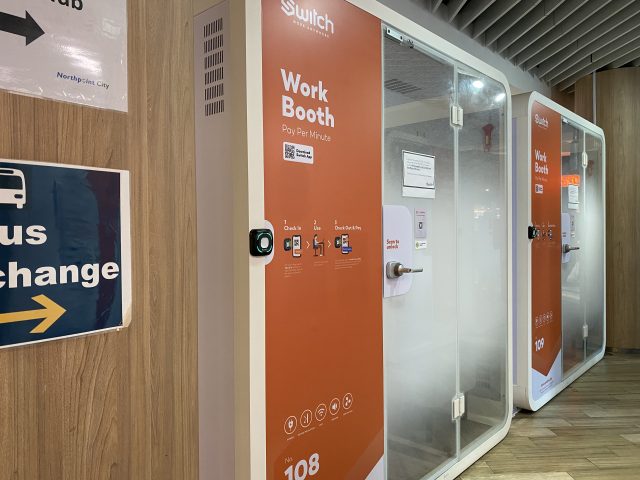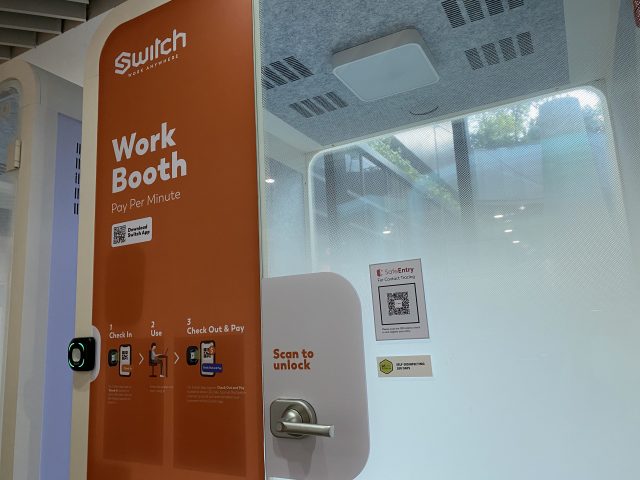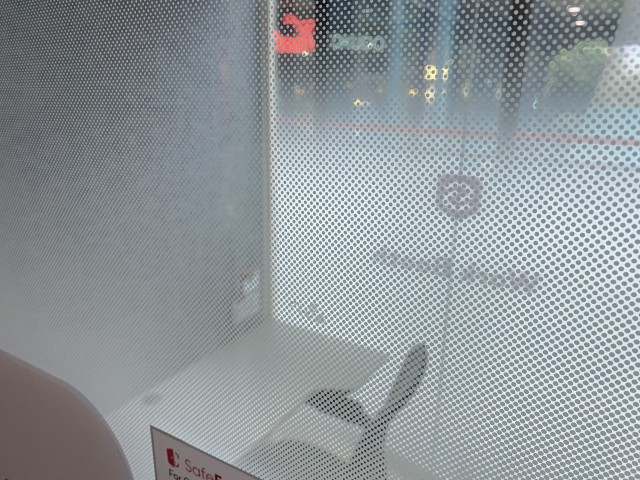
Out of curiosity, Lavonne Yew Yu Xuan booked a Switch work booth at Northpoint City in Yishun to work on her assignments in December 2020. She found the experience unexpectedly pleasant.
“It’s good that it’s your personal space. You get to lock it, no one can come in and there’s no way that other people can disturb you,” said Lavonne, a 19-year-old Ngee Ann Polytechnic student.
Launched in late 2020 by Asia-based PropTech Innovation Lab REinvent, the Switch work booths come in either one or four-seaters. They are meant to serve those who lack a conducive environment at home for work and study.
Each booth comes with a dedicated Wi-Fi network, a Bluetooth speaker, and of course, a desk and chairs. People can book the booth for $3.60 to $14.40 per hour, depending on the size and location of their chosen booth.
Mr David Zhao, vice president of the Growth department for Switch, told The UrbanWire: “Even before Covid-19, flexible and hybrid working wasn’t a new thing but Covid-19 definitely accelerated the process of how our community has adopted it.”
During the recently-ended Phase 2 (Heightened Alert), Mr Zhao said his team had to cap the number of users in a booth to two in order to comply with the rules.
Despite the restrictions, he said the demand for Switch booths remains healthy and his company is “very much encouraged by the result so far”.
Lavonne feels that the Switch work booth is a great alternative to traditional studying spots during the pandemic as it “minimises direct human interaction”.
Lavonne also finds that she can work faster in the booth.
“I cannot focus on doing my work with distractions. The work booth is helpful in eliminating distractions for me,” said Lavonne.
Similarly, Mr Ang Tan Kang Le Marco has tried the four-seater work booth and finds the environment very conducive for him.
“I can’t stand tight spaces, but [in] the Switch work booth, the table and chairs made it look very inviting,” the 21-year-old Temporary Lab Technician Executive in Singapore Polytechnic said.
He added that while studying in an open area “allows one to move around easily”, he is more likely to be distracted by his surroundings.

Mr Ang Tan also enjoys the convenience of being able to check the availability of the booths from an app. This, to him, is very important as he doesn’t like making his way to study spots like cafes only to find all the tables occupied.
Still, he feels that the booth’s design can be improved to guarantee more privacy for its users.
“From the eye level, you can’t really see what is inside the room, but if you go closer and you tiptoe, you can,” he said.

Ms Low Sue Gi, 21, a student at Singapore Institute of Management, has seen the Switch work booth in malls. She has yet to give it a try though as she feels the charges are “not student-friendly”.
Booking a one-seater Switch work booth at Northpoint City for two hours costs $10.80.
On the other hand, buying a cup of hot brewed coffee, the cheapest drink on the Starbucks menu, will set one back by just $4.40 regardless of how long he or she stays in the cafe.
“I think it’s worth the money if you really need some privacy and peace when doing work. Otherwise, I feel that going to a cafe is a good-enough option for many, [and it’s] more budget-friendly,” said Ms Low.
Edited By: Adiel Rusyaidi Ruslani and Charlotte Chang
Proofread By: Teo Yin Yan and Tricia Kuan
